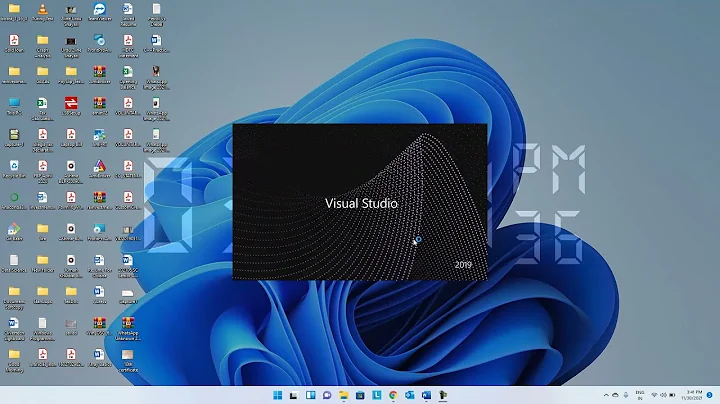How to build and use a C++ static library for ios application
Solution 1
This will do,
1)Create c++ library using same way, iOS->Framework&Library->Cocoa Touch Static Library in Xcode 6.
TestCPlusPlus.h
int sub(int a, int b);
TestCPlusPlus.cpp
int sub(int a, int b)
{
return a - b;
}
2) Build the static library keeping configuration iOS Device, then iPhone 6(Basically simulator.)
3) then Expand Products in File Browser view. Select your .a file, say libTestStaticLibrary.a , then Right Button > Show in Finder. Move up in folders. You should be able to see two folers Debug-iphoneos and Debug-iphonesimulator
4) now open Terminal go till this Products path then type
lipo -create Debug-iphoneos/libTestStaticLibrary.a Debug-iphonesimulator/libTestStaticLibrary.a -output libTestStaticLibrary.a
5) Now open your project which uses this library, you need to drag and drop the static library files as well as the header files which have function declaration of static library functions.
6) Now, create Cocoa touch class file which will act as adaptor between static library and obejective -c files. Change the extension to .mm
MyCustomAdaptor.h
@interface MyCustomAdaptor : NSObject
-(int)getSub:(int ) a SecondParam:(int) b;
@end
MyCustomAdaptor.mm
#import "TestCPlusPlus.h"
@implementation MyCustomAdaptor
-(int)getSub:(int ) a SecondParam:(int) b
{
int c = sub(a,b);
return c;
}
@end
7) now use this MyCustomAdaptor in any of the objective c- file.
Solution 2
Please notice that your .a is build with i386 or armv7? Generally, you should build both versions and combine them into one. like this: lipo -create -output libopencore-amrwb.a libopencore-amrwb-armv7.a libopencore-amrwb-i386.a
Solution 3
I'm currently doing the same as you. I've had the same problem you describe here, actually the same two errors.
When you build your library you have to have in mind where're you going to use it, iOS device or simulator. This is important because you have to build for the different cases, this is very simple, when you build you library just check the "Select Scheme".
For Real device use:

Just to test in the simulator use:

After building just drag-drop the files created to the project you want to use the library and you're good to go!
Related videos on Youtube
Comments
-
feelfree over 1 year
I know how to build a object C static library using
iOS->Framework&Library->Cocoa Touch Static Libraryin xcode 4.6, and it is straightforward with the help of this tutorial Creating a Static Library in iOS Tutorial. One thing I am not sure, however, is how to build and use a pure C++ static library for io application. For building a C++ static library, I am also useiOS->Framework&Library->Cocoa Touch Static Libraryguideline, and the difference is that I delete all the .h and .m files when creating the static library project and then put all the C++ static library head files and implementation files in the project. A very simple example is as follows:hello.h
#include <iostream> void say_hello();hello.cpp
#include "hello.h" void say_hello() { std::cout<<"hello"<<std::endl; }It seems working, and I can build
hello.astatic library for iPhone 6.1 Simulator. The next step is to build an application that will invoke the static library. I build a simpleiOS application->Single View Applicationfor iPhone 6.1 Simulator, and then try to invoke thehello.astatic library inViewController.mmfile (change ViewController.m to ViewController.mm so that it can invoke C++ function) simply with the following code:say_hello();However, I received one warning and two error messages:
Warning:
ld: warning: ignoring file hello.a, file was built for archive which is not the architecture being linked (i386):Error 1:
hello.a Undefined symbols for architecture i386: "say_hello()", referenced from: -[ViewController viewDidLoad] in ViewController.oError 2:
ld: symbol(s) not found for architecture i386 clang: error: linker command failed with exit code 1 (use -v to see invocation)I then have several questions related to this experiment:
- Is it the right way to create a pure C++ static library?
Is there something wrong with the way how I invoke the C++ static library?
In my example, when invoking the static library, how could I solve the link errors?
Many thanks.
-
Slavcho almost 7 years+1. But what about the same approach used in Swift? I've implemented this, but using Bridging-Header.h . Can this be simplified without the bridging header?


![How to create a static library | [Linux Programming]](https://i.ytimg.com/vi/3RmIVDgPmGk/hq720.jpg?sqp=-oaymwEcCNAFEJQDSFXyq4qpAw4IARUAAIhCGAFwAcABBg==&rs=AOn4CLD-tIMm72C9pWXEPMGIsA3KBBkrlA)



